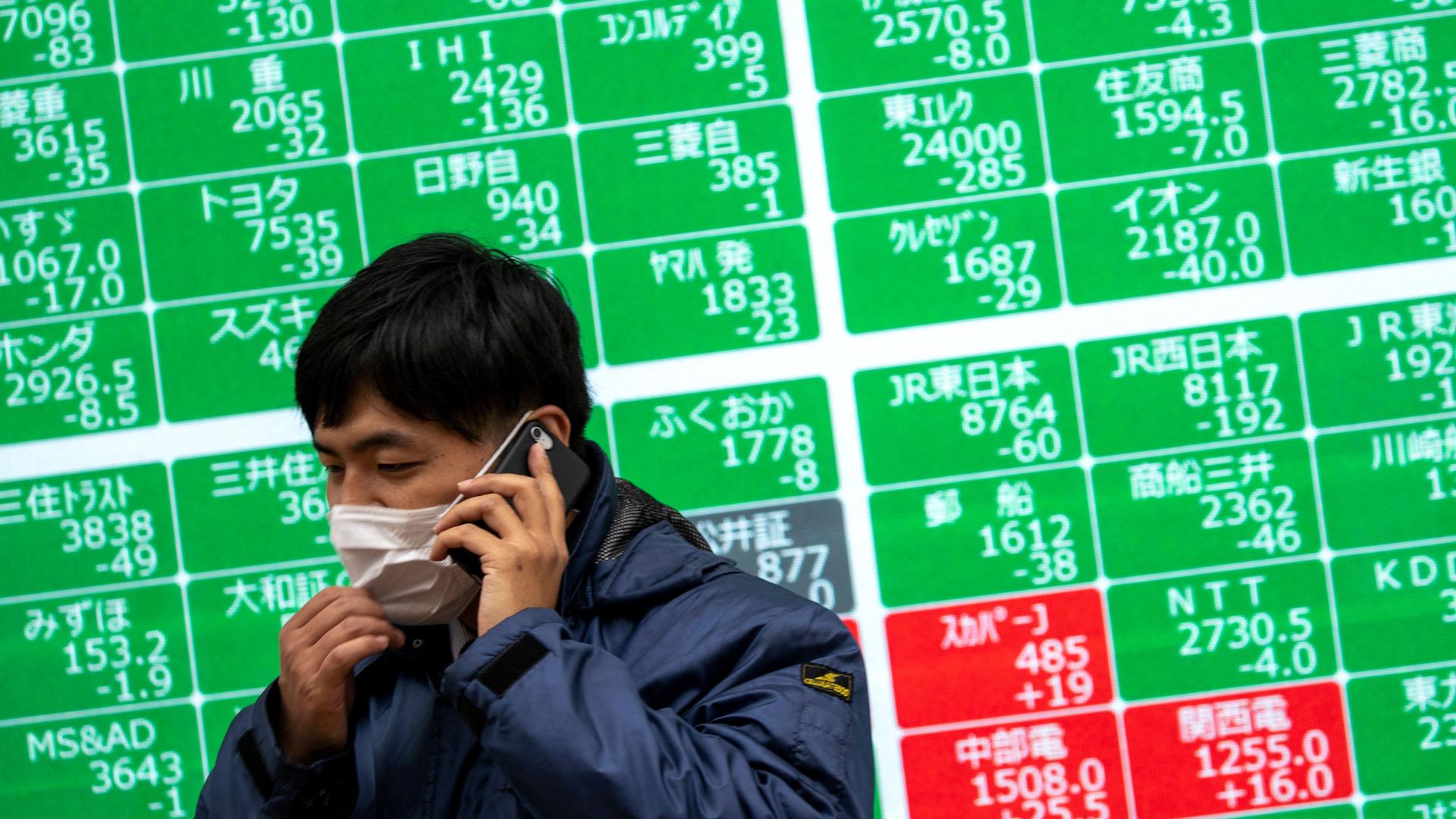China moves forward with Hong Kong security law; Oxford shows promise for potential vaccine; US COVID-19 deaths reach 100,000
People walk past a TV screen showing news of Beijing’s approval of a controversial Hong Kong security bill, in Hong Kong, May 28, 2020.
Top of The World — our morning news round up written by editors at The World. Subscribe here.
China’s parliament voted to move forward with a controversial security law that would make it a crime to undermine Beijing’s authority in Hong Kong. Bypassing Hong Kong’s legislative process, the law would effectively alter the territory’s mini-constitution, which gives it semi-autonomy.
China asserts the law will counter subversion, terrorism and foreign interference, but condemnation has been widespread, as critics say the move threatens civil liberties and will quash the city’s unique political status and role as a global financial hub. US Secretary of State Mike Pompeo alerted Congress that the administration no longer views Hong Kong as autonomous from the mainland, saying, “no reasonable person can assert today that Hong Kong maintains a high degree of autonomy from China, given facts on the ground.”
Protests and clashes broke out Wednesday in Hong Kong over the security law, and another piece of legislation that would criminalize disrespect of the Chinese national anthem.
And: Outrage and protests as demonstrators call for charging police officers with murder over the death of unarmed black man, George Floyd
What The World is following
A potential vaccine for the novel coronavirus is under trial from University of Oxford — millions of doses could be ready by September, scientists say. And, a Canadian judge has rule that the case against senior Huawei executive Meng Wanzhou can go forward. In the US, deaths from COVID-19 have reached 100,000, highlighting extreme disparities, while in South Korea, restrictions have been reimposed as the number of cases spike.
From The World
Indigenous groups fight to stay closed as restrictions ease
The Haida in British Columbia, Canada, are one of many Indigenous groups across the world trying to stay closed as surrounding areas reopen following restrictions to contain the spread of the coronavirus. Their caution is dictated in part by history: The Haida people once numbered in the tens of thousands, but in the early 1900s, they lost 90% of their population to smallpox and other diseases brought by Europeans. Now, they number about 500.
If there were a coronavirus outbreak in Haida Nation, their small hospital would be quickly overwhelmed, and older people would be most at risk — including the last people fluent in their language.
Under quarantine, the first talkie made by a woman in Spain resurfaces

With much of the world under lockdown this year, there’s a lot more time to rummage through things: drawers, basements, freezers … and archives. In Spain, researchers at the national film archive, Filmoteca Española, came across an old film that had been ignored for decades.
The 8-minute black and white documentary is a journey across the Spanish island of Mallorca. Researchers think that the film, titled “Mallorca,” was made between 1932 and 1934, which would make it the first talking film directed by a woman in Spain. When the film was discovered, no one had heard of the name María Forteza.
Morning meme
British politician Dominic Cummings has come under fire in the United Kingdom for breaching coronavirus lockdown rules. But he’s being censured via censors — anti-porn filters have blocked his name from trending on Twitter, instead offering misspelled variations on auto-complete.

In case you missed it
Listen: Governments work on recovery plans as societies open up following coronavirus lockdowns

Governments everywhere are trying to figure out how to put together a recovery plan to get past the economic blow from the coronavirus pandemic. The European Union on Wednesday moved forward on its plan. And, US officials signaled that they’re preparing to remove Hong Kong’s special trade status, declaring that it is no longer autonomous from China. Also, the world is living through stressful times and putting on a soothing song at the end of a long day can provide some relief. This is where acclaimed Japanese novelist Haruki Murakami stepped in and took to Tokyo radio waves to host a special show called “Music for a Brighter Tomorrow.”
Don’t forget to subscribe to The World’s Latest Edition podcast using your favorite podcast player: RadioPublic, Apple Podcasts, Stitcher, Soundcloud, RSS.
Our coverage reaches millions each week, but only a small fraction of listeners contribute to sustain our program. We still need 224 more people to donate $100 or $10/monthly to unlock our $67,000 match. Will you help us get there today?
